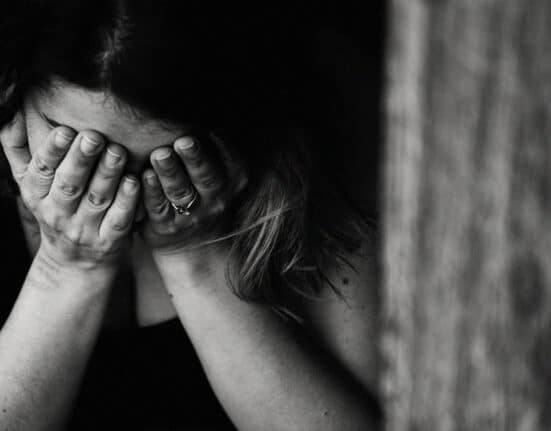Warning: This article talks about topics of rape and sexual violence.
It also contains spoilers for the films ‘Deleter’ (2022), ‘Vince and Kath and James’ (2016), ‘Die Beautiful,’ and the teleserye ‘Walang Hanggan’ (2012.)
–
In a recent decision, the Supreme Court held that penetration was not necessary for a case to be deemed rape.
According to the Court, a “mere introduction, however slight, into the cleft of the labia majora by a penis that is capable of penetration, regardless of whether such penile penetration is thereafter fully achieved, consummates the crime of rape.”
This was seen as a landmark ruling in the Philippines, given the fact that the country’s Anti-Rape Law defines rape to be a form of sexual assault that must involve penis insertion into one of the victim’s orifices.
For years now, many rape victims in the country have been scared of coming forward because of the country’s unreliable legal system.
Many are scared to report about their experiences due to the large culture of victim-blaming in the country–of being told what they could have done as victims to avoid their situation. This can be seen in how only 6% of rape and sexual assault cases go reported in the country, according to experts. Of these cases, even less are tried in court.
In 1996, former Congressman Romeo Jalosjos was convicted for the stuatutory rape of an 11-year-old girl. While his original punishment was two life sentences, he was let out after serving only 12 years. Jalosjos has been trying to get a pardon in 2019 from former President Rodrigo Duterte to be allowed to run in the elections of that year.
In 2002, a man named Nathaniel Surio was accused of sexually abusing his 12-year-old daughter on six separate occasions. While he was proclaimed guilty by the court, of these six situations of sexual abuse, four were not counted due to a “lack of evidence”. During the trial, some spectators doubted the girl because of minor inconsistencies in her testimony.
In 2016, former President Rodrigo Duterte joked that he should have been the first to rape the murdered Austrialian missionary. “I was angry because she was raped, that’s one thing, but she was so beautiful, the mayor should have been first,” he said. Duterte was mayor for Davao City before he was elected president.
In 2017, Duterte made yet another rape joke–this time about Miss Universe. He stated that you could ‘mess with’ Miss Universe and that he would congratulate anyone who had “the balls to rape somebody when you know you are going to die.”
And in 2018, while pertaining to the number of rape cases in Davao, Duterte said: “As long as they’re are many beautiful women, there will be more rape cases.”
A total of 7, 197 cases of rape were reported from January 1 to November 13 of 2022. The National Baseline Study on Violence Against Children said that 17.1% of Filipinos aged 13 to 17 years old have experienced sexual violence.
About 3.2% have been forced to participate in consummated sex–and this only counts cases with actual physical penetration.
These victims were targeted not only by strangers or by criminals but by family members, by teachers, by co-workers.
The situation of rape and rape cases in the Philippines becomes even trickier when one sees how it’s portrayed in the country’s films and TV shows. For some reason, rape has been turned into a means of lazy plot development and shock value instead of being treated like the serious issue that it is.
“The current avalanche of female rape on TV has become something of a joke,” says Ellen Vanstone of The Globe and Mail.
“Seeing something over and over tends to normalize it, and eventually makes it meaningless.”
In Mikhail Red’s Deleter (2022,) we learn that the main character Lyra is grieving the mysterious and sudden death of her co-worker, Aileen. Enraged by the circumstances of her death, Aileen starts haunting Lyra, trying to get her to see what truly happened–what it is that led her to insanity and then, eventually, suicide.
I remember watching it and loving the first half. The story was new and original, and the production value of what I was watching felt like it was on par with U.S. horror films. I was enjoying myself, fully immersed in the story until we get the big reveal–what the entire film was building up to: the reason behind Aileen’s death.
And then we are shown yet another rape scene. One of the thousands upon thousands that can be found anywhere else within Philippine media. It is much too long and far too graphic, and as someone who has experienced sexual assault, there is nothing in this scene that makes me feel seen or understood.
All I felt leaving the movie theatre was uncomfortable.
We often see rape scenes on TV regardless of the time of day; they’re a way to boost show ratings, like in the case of Walang Hanggan (2012), or to move a story along, like in the previously aforementioned Deleter.
There are ways that they are done properly: when they focus on how the woman may have felt, or when it instead looks at how the victim deals with the trauma following their situation.
But often in Philippine media, it’s used as an excuse to bring out the “damsel in distress” trope–like in Vince and Kath and James (2016) where, for some reason, there’s a fake-out rape scene where James pretends to try to rape his girlfriend and Vince “heroically” comes to swoop in and save her.
It’s tiring to see such a serious topic seldom being taken seriously; not just in its portrayal in films and TV shows, but in how it’s treated in the entire country. There are so many people trying to say what is and isn’t rape, whose fault it is and whose fault it isn’t, and in all this noise there is little space for actual victims to talk about what they want.
Thankfully, we are starting to have more films that have become more sensitive in how they use rape.
One example that comes to mind is Die Beautiful (2016), which has rape found within the plot but makes sure that it’s integral to the main character Patrick’s life, and isn’t just written lazily. Instead of having someone come to save him, or showing a rape scene with absolutely no follow-up, we instead see how Patrick is deeply affected by what happened.
Even more, it opens up the conversation of how young gay men in the Philippines are often sexually assaulted and taken advantage of, with no room to talk about their experiences because of the negative outlook on the LGBTQ+ community in the Philippines. That is meaningful. That isn’t lazy.
The SC ruling is a step in the right direction. And it can’t be denied that PH media is growing to become more progressive.
But with the current state of things, it’s easy to say that we still have a long way to go.
How useful was this post?
Click on a star to rate it!
Average rating 0 / 5. Vote count: 0
No votes so far! Be the first to rate this post.
We are sorry that this post was not useful for you!
Let us improve this post!
Tell us how we can improve this post?









